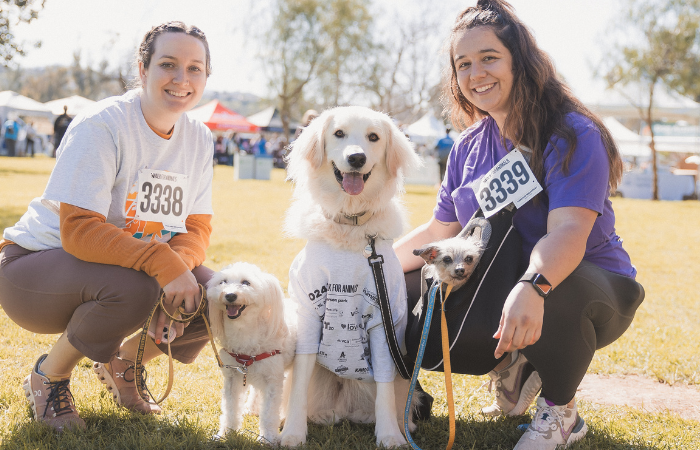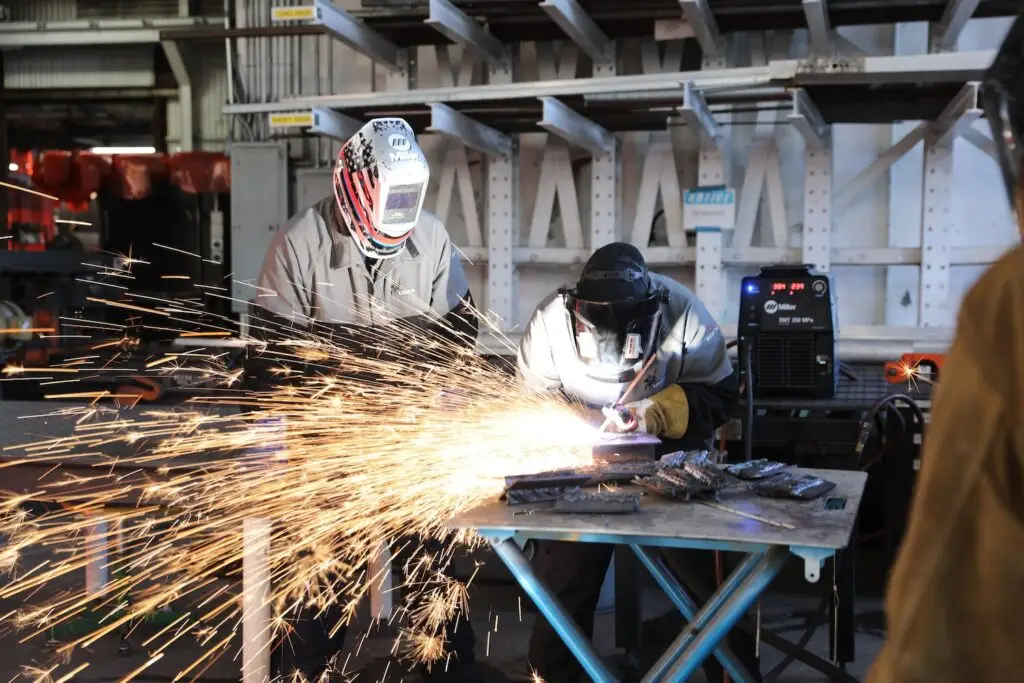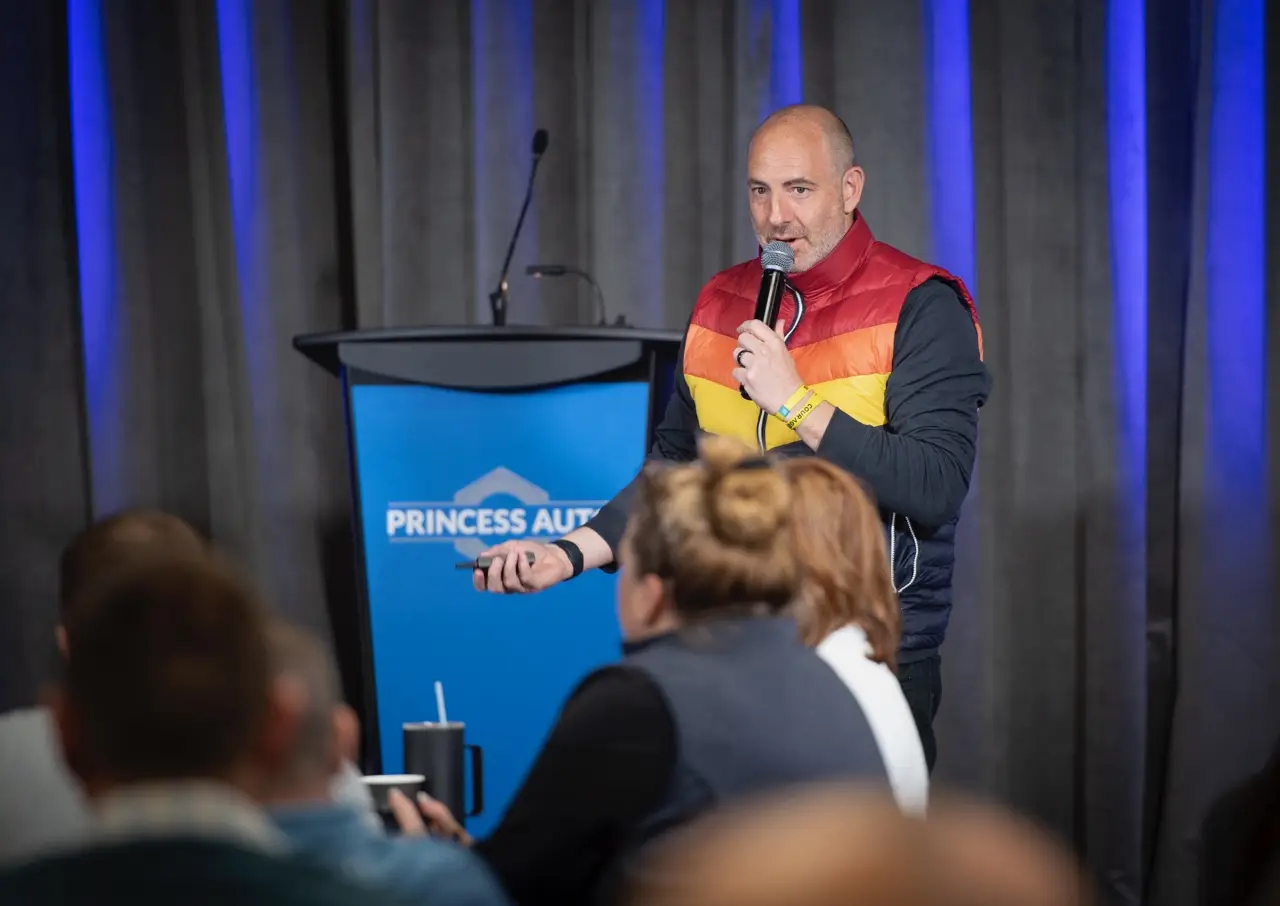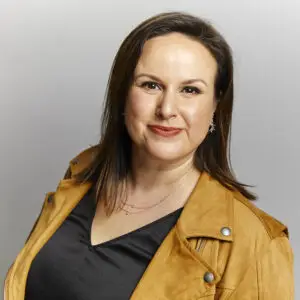Ryan Berman describes himself as a “fear fighter.” The author, speaker, podcaster, and founder of the San Diego-based Courageous consultancy works to infuse courage into the DNA of companies across the country by identifying and combatting the fears that hold them back.
Berman’s best-selling book Return on Courage: a Business Playbook For Change outlines that mindset for the masses. “The premise was courageous ideas are the only ones that matter,” he says.
In his recently released second book, Headamentals, Berman and co-authors Suzy Burke, PhD, and Rhett Power invite business leaders to look inward and “catch, confront, and change” the negative self-talk that can be a barrier to successful leadership.
“The two big ahas that came out of the book—well, there are a few, but the two biggest—were that leadership starts with self-leadership and … that self-talk leads to team talk. If your self-talk is fear-based, that’s going to be mirrored across your team and they’re going to smell it. They’re going to see it. They’re going to feel it. You have to do the work to get your self-talk in order so you can lead your team,” Berman says.
“I never saw this as a self-help book; I saw it as a team help book, and I think that’s what makes this book a little bit different. You need to do your part as the leader to deal with your own monster in your mind,” he adds.
We recently chatted with Berman to learn more about the concepts of courage and self-talk and how they’re intrinsically linked, plus the big things on his agenda in the coming months. See his Q&A below:
What inspired you to write Headamentals?
After spending a near decade studying courage, one thing kept showing up: The biggest barrier to courageous action isn’t a lack of strategy or skill—it is the spin happening between our ears. Our self-talk is the gatekeeper. The aha moment came during a conversation with my now co-authors, when we all realized it didn’t matter how big or small the company was—the higher leaders rose, the more isolated they felt, left alone with their own inner dialogue. The pandemic only amplified that silence, forcing us all to spend even more time with ourselves. Headamentals was born from the realization that we spend up to 18 hours a day with just that voice in our heads—and that it’s time we clean up that conversation before trying to lead anyone else. In essence, self-talk left unchecked, will cripple your team-talk.
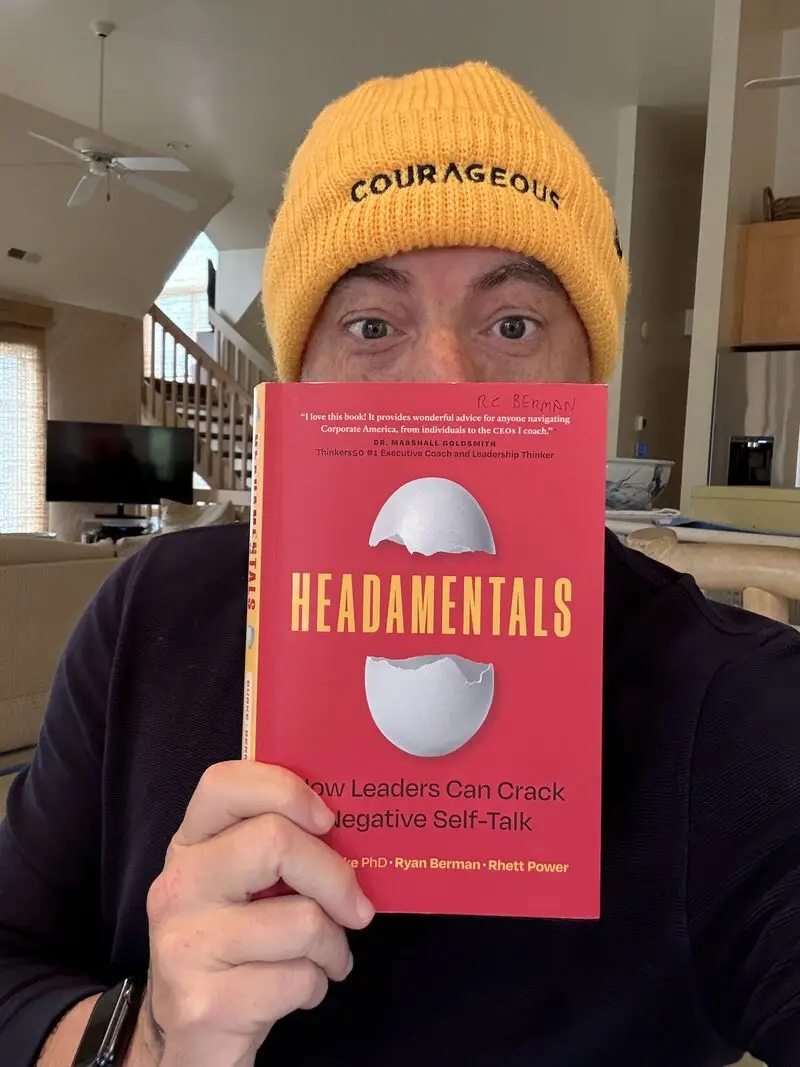
You’ve previously written about courage and spoken extensively on the subject. How are the concepts of courage and self-talk related?
Courage and self-talk are inseparable. Every act of courage begins with a thought, a moment when you decide to trust yourself more than your fear. If your internal dialogue is full of doubt, judgment, or perfectionism, courage never makes it out of your head. But if your self-talk is grounded in clarity and rooted in calm, you create the conditions for bold action. Headamentals has elements of Return on Courage (my first book) turned inward—it’s the inner work that has to happen before you can build a courageous culture around you.
If our readers could take away one piece of advice from Headamentals, what would it be?
Leadership starts with self-leadership. You can’t lead others until you learn to lead the voice in your head. Self-leadership is the foundation of every healthy team, family, and culture. The goal isn’t to silence your inner critic, it’s to get curious about it, to understand why it’s there, and to make sure it’s not the one driving the bus.
What is the latest with Courageous?
This year, we’ve been partnering with brands like New Belgium Brewing, Tropicana, the Houston Texans, Bausch & Lomb, Kohl’s, and Caesars Entertainment—each on their own path toward change. Whether it’s a keynote or an offsite, helping them clarify their story, build leadership belief, or rally teams around a bold mission, our work is all about helping leadership teams rediscover what makes them brave at work.
PARTNER CONTENT
So, what’s next for you?
Outside of the keynotes, workshops, coaching, and advisory work we’re doing at Courageous, I was gifted the opportunity to write Landon Donovan’s memoir—which comes out in March 2026, just a few months before the World Cup arrives here in America. It’s been an incredible journey capturing one of the most iconic U.S. soccer stories ever told. I’m also working with Jaelin Kauf, an aerial mogulist and Olympic silver medalist, as her high-performance coach. I’ll be joining her and Team USA in Italy this February as they prepare for the Winter Olympics. So, between helping companies find courage and helping athletes find flow, I’d say the theme remains the same: Empowering people to perform at their bravest when it matters most.
This post contains affiliate links to products and services. We may receive compensation when you click on links.



